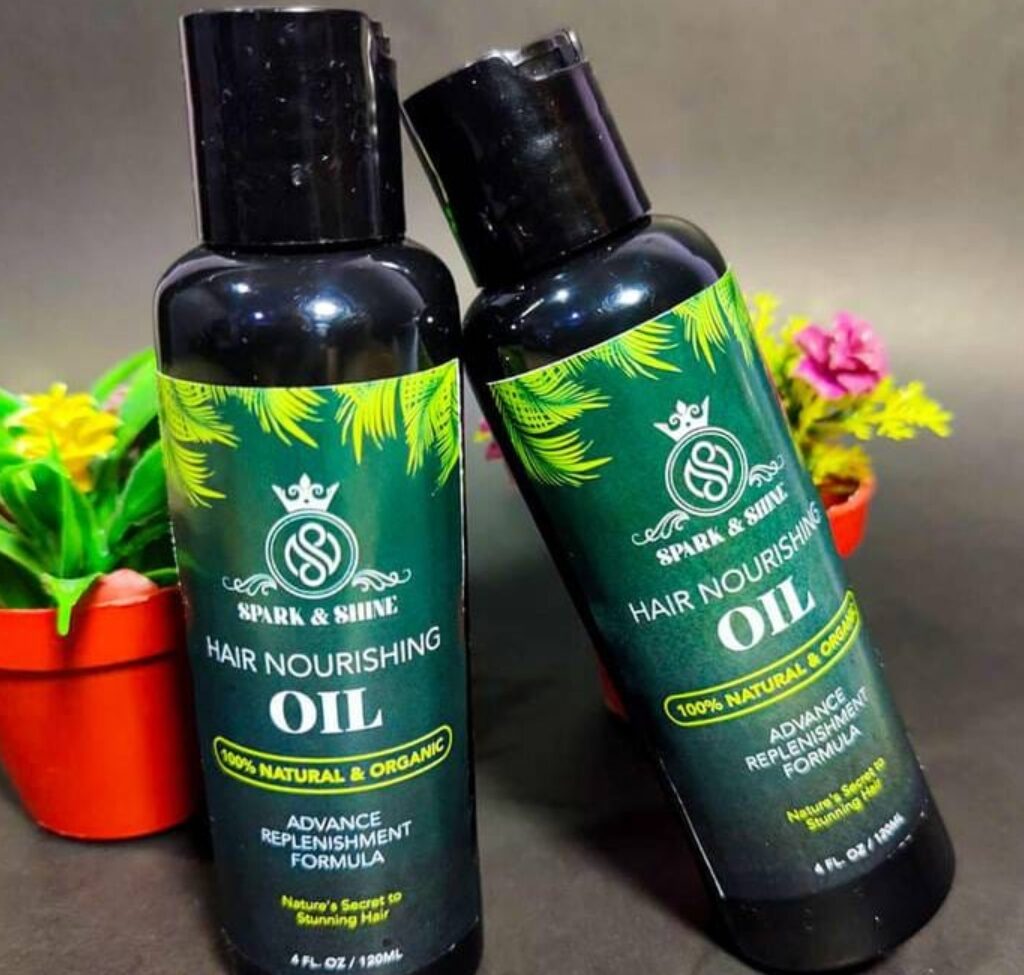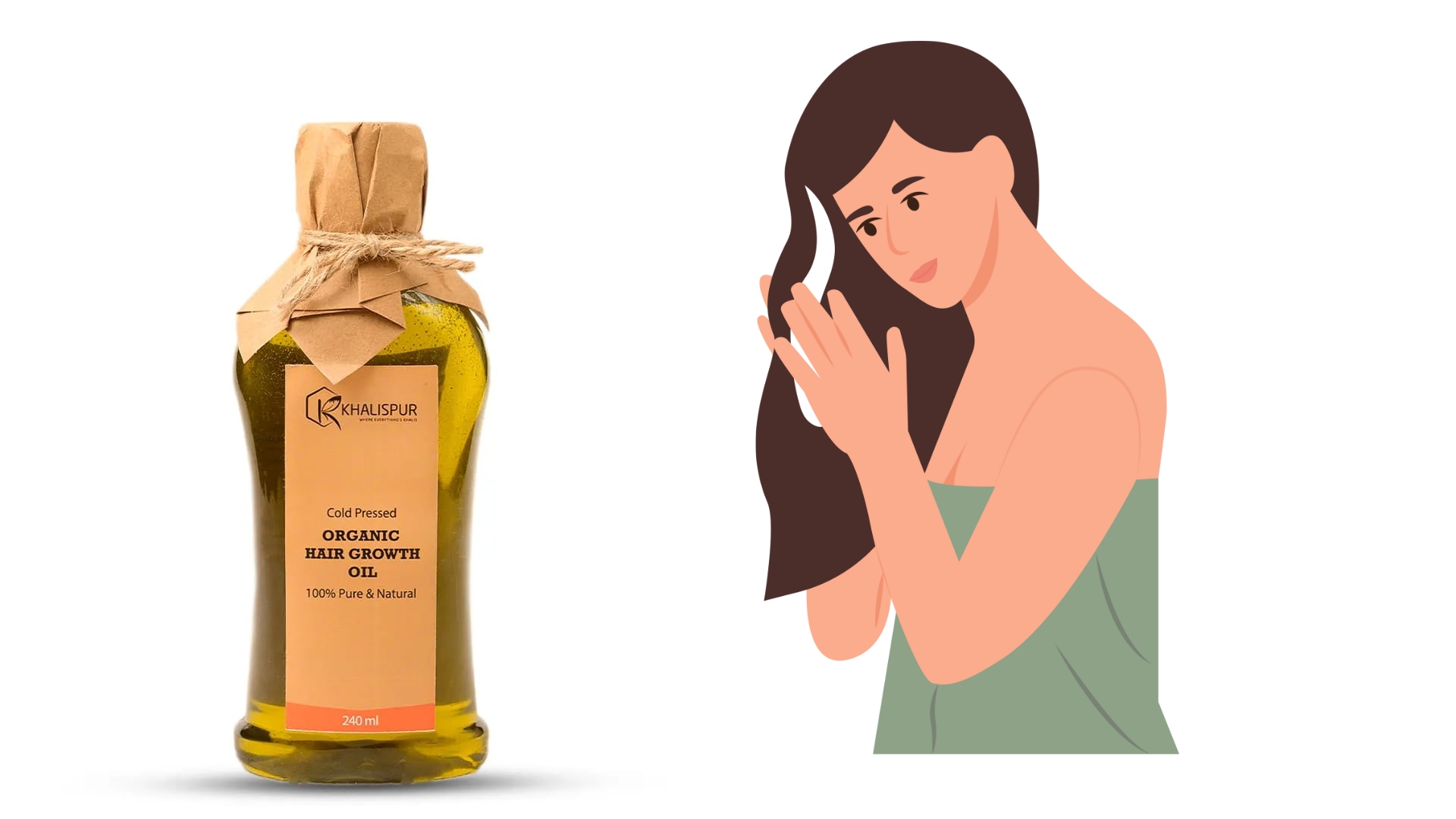More people are ditching chemical-laden products for natural alternatives. This shift reflects a growing awareness of what we put on our bodies and their long-term effects. The organic hair oil market is booming. Consumers want products that nourish without harmful side effects. They seek solutions that work with their hair’s natural structure rather than against it.
What Makes Hair Oil “Organic”?
These products undergo strict certification processes. The USDA Organic seal guarantees at least 95% organic ingredients.
Key characteristics of organic hair oils include:
- No synthetic chemicals or additives
- Sustainably sourced ingredients
- Minimal processing methods
- Eco-friendly packaging
- Third-party organic certification
Popular organic ingredients include coconut oil, argan oil, jojoba oil, and essential oils from herbs like rosemary and lavender.

Science-Backed Benefits of Organic Hair Oil
Deep Moisturization
Organic hair oil penetrate the hair shaft effectively. They contain fatty acids that mirror your hair’s natural lipids. Coconut oil, for example, has a unique molecular structure that allows it to reach the hair cortex.
Research shows that coconut oil reduces protein loss in hair by up to 40%.
Scalp Health Improvement
A healthy scalp produces healthy hair. Organic oils balance the scalp’s pH levels naturally. Jojoba oil closely mimics human sebum. It regulates oil production without clogging pores. This balance prevents both dryness and excessive oiliness.
Hair Growth Stimulation
Several organic oils promote hair growth through improved circulation. Peppermint oil shows even more promising results. Studies indicate it can increase hair thickness and follicle depth significantly.
Protection from Environmental Damage
This shield guards against UV rays, pollution, and harsh weather conditions. Antioxidants in these oils neutralize free radicals that damage hair structure. Argan oil contains high levels of vitamin E and phenolic compounds. These antioxidants preserve hair color and prevent premature aging of hair follicles.
Current Market Trends Shaping the Industry
Natural and Clean Beauty Movement
The global natural hair care market reached $10.17 billion in 2024. This growth reflects consumers’ shift toward cleaner formulations. People read ingredient lists more carefully now. They avoid sulfates, parabens, and synthetic fragrances. Organic hair oils meet this demand for transparency and purity.
Customization and Personalization
Modern consumers want products tailored to their specific needs. Brands now offer personalized hair oil blends based on:
- Hair type and texture
- Scalp condition
- Lifestyle factors
- Environmental concerns
- Specific hair goals
Multi-Functional Products
Today’s consumers prefer products that serve multiple purposes. Multi-functional organic hair oils combine:
- Deep conditioning treatments
- Heat protection properties
- UV defense capabilities
- Styling benefits
- Scalp treatments
Sustainable Packaging Innovation
Environmental consciousness drives packaging decisions. Brands adopt recyclable glass bottles, biodegradable plastics, and refillable containers
Consumer Preferences and Buying Patterns
Ingredient Transparency
Consumers demand complete ingredient disclosure. They research components before purchasing. Brands that provide detailed information about sourcing and processing gain consumer trust. Education plays a crucial role. Brands that explain how ingredients work see higher customer loyalty rates.
Price Sensitivity with Quality Focus
While consumers prioritize quality, price remains important. The sweet spot exists between premium pricing and accessibility. Most successful brands position themselves in the mid-to-upper price range. Value perception depends on visible results and overall experience, not just price point.
Digital Discovery and Purchase
Social media heavily influences hair oil purchases. Platforms like Instagram and TikTok showcase real results from real users. However, consumers still research extensively before buying. They read reviews, compare ingredients, and seek expert opinions.
Choosing the Right Organic Hair Oil
For Dry, Damaged Hair
Look for oils rich in fatty acids and proteins. Argan oil and avocado oil provide intensive moisture. Sweet almond oil adds shine without heaviness.
For Hair Growth Support
Rosemary, peppermint, and castor oils stimulate circulation. These ingredients work best when combined with scalp massage techniques.
For Oily Hair
Lightweight oils like jojoba and grapeseed won’t weigh hair down. They balance oil production without adding excess moisture.
For Color-Treated Hair
Antioxidant-rich oils protect color from fading. Sunflower oil and pomegranate seed oil contain compounds that preserve vibrancy.
Application Techniques for Maximum Benefits
Pre-Shampoo Treatment
Apply oil to dry hair 30 minutes before washing. This method prevents stripping during cleansing.
Leave-In Treatment
Use sparingly on damp hair for ongoing protection. Start with 2-3 drops and adjust based on hair length and thickness.
Scalp Massage
Warm oil slightly before application. This technique improves absorption and circulation.
Overnight Intensive Treatment
For severely damaged hair, apply oil generously before bed. Cover with a silk scarf or pillowcase to prevent staining. Shampoo thoroughly in the morning.
Future Outlook and Innovations
The hair oil market continues evolving. Emerging trends include:
- Microencapsulation technology for controlled release
- Fermented ingredients for enhanced bioavailability
- Adaptogenic herbs for stress-related hair issues
- Personalized formulations based on DNA testing
- Waterless concentrates for reduced environmental impact
Brands invest heavily in research and development.
Conclusion
Organic hair oil represents more than a beauty trend. It reflects a fundamental shift toward conscious consumption and natural wellness. The science supports its benefits, and consumer demand continues growing.
The key to success lies in choosing quality products suited to your specific needs. Research ingredients, understand your hair type, and commit to consistent use. With patience and the right approach, organic hair oil can transform your hair health naturally. Rather than chasing quick fixes, embrace the journey toward healthier hair. Your future self will thank you for making the switch to organic, natural care. The investment in quality products pays dividends in hair strength, shine, and overall health.

